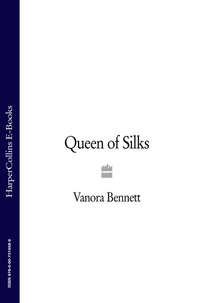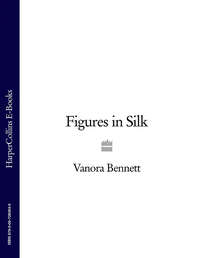
Полная версия
The People’s Queen
Now she arranges all this on the window ledge. She tips a few drops of rose oil through the steam, watching the little ring of it cloud and dissipate in the water, sniffing at the rich scent of gardens in sunlight that suddenly fills the steam.
Finally, she opens the box.
‘Look,’ she says, and his eyes turn. Neatly, murderously twisting off the heads of each limp rose in turn, she pulls out three great handfuls of dewy pink petals and, with the air of a magician, opens the curtains and throws them on the water.
The mysterious scent of summer happiness wafts out to where the King is sitting. At last Edward smells it, and, now he can see the floating rose petals, seems to understand. Faintly, he smiles. It’s the first time today that he’s met her eye.
‘Beautiful,’ he murmurs, and fumbles for her hand. He’s as grateful as if it’s the first time she’s done this, and as surprised, she thinks sadly. ‘You’re very good to me, my dear.’
She kisses the top of his head. ‘I like to make you happy,’ she murmurs back as, putting her hands on his shoulders, she eases off the cloak.
Human decline – the slow return of dust to dust and ashes to ashes – is a strange business, she thinks as she undresses him down to the skinny arms and legs, the roughened barrel of chest, the bent back, the privy member hanging uselessly below, and braces herself to half push, half lift him into the water. He’s got so thin, but he’s still heavy enough to take her breath away.
How long is it since she first saw him like this, with that wondering, uncertain look in his eye? She can’t even remember the early shivers of anxiety she must have had when he started to forgot a word here, or a name there.
What she does remember is the time when she was still confident he was all right. She has to work back from those happy moments to find the shadows. For instance, he was definitely all right the day she heard him talking to prim little William of Wykeham. It was a conversation she probably wasn’t intended to overhear, but how could she not, since she was in the chamber with them, making them comfortable, pouring out wine, embroidering something in a corner, turning her alert eyes down, keeping herself quiet, keeping her lips tight together, keeping her ears open as she always did? He said, in that mocking way he used to have, in response to one of the Chancellor Bishop’s gentle naggings about his failure to make confession often enough, ‘But I’ve had to give up fucking and jousting since I saw sixty on the horizon, dear man, so what would I tell you?’ She’ll never forget the poor Bishop of Winchester’s shocked pink face. She had to bite her own lips tighter together and look down harder than usual at whatever never-to-be-finished piece of work was in her frame to stop herself from laughing. It still makes her smile now to remember it. Of course Edward didn’t mind shocking the Bishop. He just went on, with all his old bright brutal cheerfulness, ‘Though I still think about them. So you could be right. Perhaps it is time for confession.’
When was that? Before William of Wykeham was sacked as Chancellor, which must be three years ago, for Alice has had his confiscated manor at Wendover for two years already. And not that long before Edward turned sixty. And this greyness of mind has crept up on him since then, she doesn’t know when…whenever she isn’t looking.
It’s worse than his body going. That was understandable, at least. She can’t remember when she last made love with Edward, but it was certainly some time before that jocular remark of his to William of Wykeham. She doesn’t really even want to remember those last bouts of careful, non-jolting, old-man love, with both of them trying their best, and sometimes even having a quiet chuckle together over the slow indignity of age. Those last times have faded and blended in her mind. She prefers to remember the first times: the breathless excitement, the shape of his nakedness, the lion smell of him, before it was medical oils and piss.
Not that he’s faded, altogether. Even now, sometimes, Edward can still be so well, and his talk so full of energy and mischief and jest, that it seems as if days like today are only a cloud that has passed. Alice treasures those moments.
‘You,’ she says lovingly, supporting him back to the stool, catching her breath, then kneeling to towel him vigorously down. She looks up, over the sagging mound of his stomach, into the beautiful long eyes fixed on her above the damp beard. This is intimacy, in the winter of your life. This is all it can be. It must be sad for a man who once so enjoyed the pleasures of the flesh. She makes her voice a little throatier. ‘The handsomest man in Christendom, still.’ Sensuously, she strokes his blotchy thigh.
He’s feeling revived after the bath. He grins with some of his old charm. He even puts a gnarled hand on her head, as if he might push her down on himself. She knows from experience that he won’t. He knows that her flirtatiousness doesn’t really mean she expects him to make love to her. He just appreciates the make-believe. He’s playing along.
This is what they’ve always shared: a love of games; a belief you can play with the realities that no one else has the nerve to question; a faunish, pagan sense of fun. This, she tells herself, is why it doesn’t matter what age does to him.
He’s humming as she pulls the nightshirt over his head, and slips the slippers on his feet, and leads him away to dress the sore on his ankle.
Once they’re alone in the bedchamber, when he’s comfortable on the padded armchair before the fire, she puts one of his feet in the basin of lavender water and kneels before the other. She rubs unguent gently over the dry, flaking edges of the scab that won’t heal, then winds the bandages she’s cut carefully round the ankle whose skin was too old to renew itself, trying to stop the quiet horror inside herself at the thought of the bone just inside there, under the decaying skin, the white mark of death, waiting to come through.
It’s only now, when she sees Edward leaning back against the cushions, enjoying the feel of her young flesh rubbing the cold of death away for a moment more, and every now and then grunting a little – but himself again, more or less, with a twinkle in his eye – that she judges the time to be right.
She begins to tell him about her idea.
She goes on rubbing as she speaks. He goes on grunting.
‘Lyons will take the Italian debt off your hands,’ she says.
‘Gnn-h.’
‘And you’ll sort out the wool problem too – he’s promised it will stop.’
‘Gnn-h.’
He should sound more excited.
‘You’ll have the money you need for this year…and the Italians may come back too…’
With a flicker of impatience, she wonders if those sounds he’s making are actually an acknowledgement of what she’s saying, or just the sounds of pleasure at being massaged. It’s even possible that they’re snores. He sometimes does nod off while people are talking to him. And he’s just had a bath.
‘That would be good,’ she goes on experimentally. ‘Don’t you think?’ She looks up while her hands tie the little knot at the end of the bandage.
His eyes are only half-shut. He’s half smiling, like an old alley cat, with torn ears and eyes and scars and a missing limb or two, purring on a sunny wall. It’s only when she takes away her hands and takes his bandaged foot out of her lap that he stops. With an air of surprise, he peers down at her.
‘Don’t you think?’ she repeats sharply. She can hardly believe he’s taking no notice. She’s been so sure he’ll be overjoyed. Grateful. He should be. It’s the most astute fund-raising idea anyone in his service has come up with in years.
‘What, what?’ he splutters. ‘Oh…Yes indeed.’
He hasn’t been listening to a word, but thinks he can get away with pretending. All Alice’s impressive statesmanlike thought, all that careful weighing of percentages and outcomes, all that convincing herself that, through today’s good idea, she’s proving herself capable of becoming the intelligent strategist of tomorrow, the good angel at Duke John’s shoulder: all gone to waste…ignored.
Alice is not always perfectly statesmanlike. The flash of rage she’s having that her idea has had such a disappointing response is too vivid to allow measured self-criticism. She doesn’t ask herself questions such as: Was this, really, the best moment? Is Edward truly in a state to take in talk of debt today?
Instead, she thinks: Is this all I am to him, after all these years? Someone whose voice he can just ignore? A servant, a nurse, a bloody pair of hands?
Then, mastering herself a little, she moves on to: Well, if he doesn’t want to listen, it’s not the end of the world. He’d agree all right if he had a sensible bone left in his body. He’d be jumping at the idea.
Finally, taking a deep breath, Alice tells herself that it’s up to her to help him make the right decision.
She says, briskly rushing him on, in tones that suggest she’ll brook no nonsense, ‘Lord Latimer agrees with you – that taking out this loan could be the solution to several problems at the same time.’
Edward answers, ‘Latimer…a good man, Latimer. Very good.’ But he sounds a little fretful now. He’s looking around. He’s beginning to understand that the massage is over, the bandage tied. There’ll be no more till the morning.
That’s assent enough, Alice judges. There’s no need to feel exasperated with him. He’s agreed.
‘You’re tired…we’ll get you into bed,’ she says, much more gently. He nods. His eyes are drooping – a child deprived of a treat.
She heaves him up. He stands, helpless, with his arm limp over her shoulder. When she begins to walk, in tiny steps, he shuffles along with her to the bed.
‘So shall I tell Latimer to prepare the papers you want drawn up? And send him to you in the morning?’ she says as they move.
He nods. He’s forgotten the whole conversation already, she can see. He just wants to be stroked and comforted and tucked into bed.
She blows kisses all the slow tiptoeing way to the door, gentle kisses, as if to a baby. His eyes are shut long before she gets there.
But once she’s out on the other side, she picks up her skirts and runs, as fast as she can, down the corridor, feeling the power in her legs, pushing her up and away, rejoicing as she goes in the quickness of her breath and the pink on her cheeks and the heat of the blood coursing through her. She can’t help herself. After hours of going so slow, she has to celebrate being young and alive.
And she has to find William Latimer, fast.
The candlelight is reflected in his eyes.
The servant has gone.
The lean tanned face is showing its deep lines. Lord Latimer’s smile is a lion’s casual snarl, eyes half-closed with sheer pleasure, head stretching luxuriously back on the neck, a beast of prey feeling the power of himself. He must have been a devil with the women in his time. ‘It doesn’t stop here, you know,’ he’s saying. Quietly – half-growl, half-purr. ‘Or it needn’t. If you wanted to go further.’
She stays still. What can he mean? They’ve solved every problem already, haven’t they?
But there’s always further to go. There’s always a refinement. She’s always known that. So Alice raises her eyebrows just a self-possessed fraction. It won’t do to look naive.
‘You mean…’ she says. Not quite a question. She folds her hands and waits.
The candle flickers on the table between them. Latimer looks around without moving his head, just a flicker of eyes – he has an old soldier’s stillness about him – but there are no open doors or windows in this room bare of hangings. He puts his elbows on the table. He leans forward until his eyes are burning so close to Alice that they seem to separate and float, four golden-green circles over very white teeth, bared. He breathes, ‘The debt he’ll be buying. Lyons. The discounted debt…’
Alice waits. His excitement is catching. She’s no longer as composed as she would have liked to be. She can feel her body leaning forward, closer and closer, until her face is nearly touching his – as if they’re lovers, about to kiss. Her heart beats faster.
‘…fifty marks for every hundred borrowed from the Crown.’
Alice says, in a monotone, ‘Yes.’
‘Imagine if you were to buy those debt papers on from Lyons. Pay a bit more. Sixty marks, say. He’d be glad of the profit…’
‘Yes…’ Be patient, Alice tells herself. It doesn’t do to sound mystified.
‘Then, once they were your bonds, you’d cash them in at the King’s treasury…’
‘Yes,’ Alice says, nostrils flaring, already scenting the beginning of the answer.
‘…at face value.’
Alice stops breathing. It seems a long time before she realises her body has stopped obeying her, and tells her chest to expand and take in air, and let it out.
She says, and she no longer cares that her voice is trembling, ‘You mean – I’d buy something for sixty marks, and exchange it for a hundred marks straight from the treasury?’
Doubling my money, or just about. Though Latimer would want a cut.
He nods. ‘We’d split the profit.’
The candle flickers, but neither of them notices any more. All Alice can see is those golden orbs, dancing before her eyes.
After a long silence, she says, flat-voiced again, ‘How?’
But she knows. The three hundred people of the royal household are divided into two layers, the upper one of which, the domus magnificencie, numbers more than a hundred people, and centres on the King’s chamber. It’s run by Latimer. It’s Latimer who formally controls access to the royal presence. It’s Latimer who chooses the chamber staff of knights and esquires of the body, the King’s closest attendants (apart from Alice). He’s also in charge of the steward who’s in charge of the domus providencie, the lower part of the household, that teeming mass of people inhabiting kitchens and butteries and pantries and spiceries and stables, and of the money kept and doled out to the traders and farmers who supply the court, as well as to the King’s creditors, by the lower royal purse: the cofferer, the comptroller, and the man in charge of royal finance, the treasurer. Sir Richard Scrope: unruly hair, big bony knees and elbows, flaking skin on a brow furrowed from the counting of coin, a man with anxious, short-sighted eyes.
Somewhere very close to Alice, the white teeth flash again.
‘I’m the chamberlain,’ Latimer says through his grin. ‘I can make it all right with Scrope. He’s not a man for trouble.’
‘Him…yes…anything for a quiet life,’ Alice agrees, for the sake of saying something pleasant – but almost absentmindedly. She has blood drumming through her head, a great fast tattoo of it. She’s thinking.
They’ll…They’d make fortunes doing this. If they did it. She and Latimer would be rich beyond their wildest dreams.
But…it would also undo so much of the good that the deal she’s dreamed up between King and merchants is supposed to bring to Edward, and the merchants, and the Duke of Lancaster, and the whole realm of England. She and Latimer (and probably Lyons, because, realistically, he’d find out, soon enough, and they’d have to cut him in too, wouldn’t they?) would be taking at least some of the money meant for the war.
She’d be stealing from Edward, who loves her.
She’d be breaking faith with her new ally, his son, whose protection she wants.
But, then again, they almost certainly wouldn’t ever find out. No one ever does, unless you’re very unlucky.
And how rich she’d be.
As she ponders, a picture forms behind her eyes. Edward, lying back against his cushions, his beard damp and combed into wet grey seaweed strands, blissfully unaware of her quiet disgust at the sore on his ankle, just enjoying the smell of the lavender oil she’s massaging into it, snorting and grunting like an old animal, and not even bothering to listen as she explains how he could save his finances.
The ingratitude of him, she thinks.
And another picture. Edward, exhausted, eyes closing despite himself, and the trusting way he leans his weight on her as she shuffles him to the bed. He doesn’t realise that he’s so heavy, even now, in his touching helplessness, that she never quite knows if she’ll be able to find the strength to heave him forward.
Or perhaps he just doesn’t care.
For a moment, she’s overwhelmed by the vision of the selfishness of old age that comes to her. Perhaps he’d be just as carelessly grateful to anyone young and willing, anyone who’d make him feel, for a moment here and a moment there, that he could push back the darkness and grab an extra hour or two of life.
It doesn’t matter to him that she’s the one beside him, she thinks, with a spike of silent rage. Letting him borrow her vigour and energy. Anyone would do.
‘What do you think?’ she hears.
She’s been so lost in her thoughts – the will-I, won’t-I whirligig – that she hasn’t realised she’s dropped her eyes till, recognising the suppressed impatience in Latimer’s voice, she darts them quickly back up to his. A guilty thing surprised.
She shakes her head.
For once, she doesn’t care if there’s indecision on her face or in her voice. There’s indecision in her heart too.
‘I don’t know,’ she says.
Latimer’s no fool. She can see, from the velvet look he gives her, that he’s following her thoughts.
He purrs, ‘My dear. You must think of yourself a little, you know.’
There’s a longer silence. She wanted to be told that. She wanted to be cajoled. Still, Alice feels her face grow thoughtful – sullen, almost.
She looks down again. But she hears every word he says next.
‘You have to think of your own future. This’ – he pauses, giving them both time to hear the unspoken word, he – ‘isn’t going to last for ever, you know.’
She mutters, ‘But the war…that money was going to help with the war…’
But Latimer must hear doubt, or insincerity, in that. He caps her: ‘…which will never be won if Duke John is leading it. There’s no point in more war, with him.’
She looks straight at him now. She’s beginning to lose the numbness she’s felt for all these long moments with Latimer’s eyes on her, a paralysis brought on by even contemplating this giant stride towards fully fledged dishonesty. She keeps thinking, instead, about how rich she’ll be if she says yes. It’s strange what a warming thought that is; how damp her skin, how fast her pulse. He nods encouragingly. His eyes are dancing, inviting her to laugh with him.
‘A good peace is better for England than a bad war, isn’t it?’ he adds, scenting victory, suddenly almost jocular with relief. ‘Honestly? And far cheaper, too.’
She’ll be rich.
The silence yawns on. His hazel-gold eyes are on hers.
Both of them are almost surprised when Alice laughs, and takes a deep breath, and says, in her firmest, most resolute voice, ‘Yes.’
SEVEN
Fortune’s Wheel
Alice doesn’t sleep well, that first night at Sheen. She tosses and turns. She’s up before dawn. She’s uneasy enough about what she’s said to Lord Latimer that she makes her excuses to Edward, before he’s even properly awake, gets his permission, and rides off, back through London, east to Essex.
She needs to talk to Aunty.
When Alice was only a girl, delivering tiles to St Albans with her old Aunty Alison on the cart (she can still hear old Aunty’s indulgent voice saying, ‘You’ve been a good girl, show you a bit of the world, why not?’), she saw a picture in stained glass in the church window there that she’s kept in her heart all her life.
It’s a picture you see all over the place. There are a lot of other people in post-Mortality England who are obsessed with the goddess Fortune and her wheel. She features in the rose window of churches all over the land.
There’s nothing very Christian about Fortune, of course. But the priests turn a blind eye to the goddess’s inconvenient paganness, because she packs in the crowds at Mass. To the brave, and to the chancers, and the gamblers, and the opportunists, Fortune represents hope: that effortless climb to the top of the wheel. But what she also represents – the capricious destruction of the greedy, later on – suits the gloomy, doomy mood of everyone else.
You see envy in the narrow eyes of every stay-at-home who doesn’t dare venture out to try his luck in the rough new game of life, these days. Anyone who isn’t making a quick fortune wants anyone who is to get his come-uppance quick. So thinking of the punishment Fortune has waiting at the end of the wheel she spins pleases the dourest of congregations in the churches, looking bitterly up at the rose windows, as much as the promise of hope pleases the people with dreams in their hearts.
What the congregation sees in the window: Fortune, that temptress, that slut, smiles temptingly down, in jewel-bright light, luring people on to take a chance, to jump on her wheel, to make their name, to get rich quick.
And this is what happens next to the humans whirling round their little bubbles of coloured glass, chancing a dance with the goddess: once she’s hooked someone in, you’ll see her willing victim on her left, clinging to the turning wheel as it moves upwards, clockwise. This happy human figure with everything still to come has sun-kissed hair flying down and back as it floats effortlessly towards the top, with the prideful little word regnabo, which Alice likes to translate as ‘I’m going to have it all’, floating above their prideful little head.
Above Fortune’s head, hanging on at the very top of the turning wheel, is a second little human figure who’s happier still. This one crows, regno, ‘I’m at the top!’ in the same cramped black letters.
But it’s the other side that most interests the losers in the congregation, because the wheel that has brought those human figures up keeps turning, and down they go again.
It’s the terror on the face of the little figure to Fortune’s right that these people like to gloat over, the terror of someone being whirled back downwards by the wheel, realising it’s all over, that day of glory, never to return, and howling, ‘I’m finished’, regnavi. Best of all is the abjectness of the last little person, right at the bottom, dropping off the wheel, being trampled under Fortune’s careless feet. ‘Sum sine regno,’ it whimpers. ‘I’ve been left with nothing.’
Quite right too, says the congregation, through smugly pursed lips. Pride goes before a fall.
Alice remembers looking up at the first of these great glowing stained-glass temptations she ever saw, and saying to Aunty, a bit defiantly, in the way of children trying to find words for a serious idea, but still afraid they’ll be laughed at for being naive, ‘I don’t see why you have to be destroyed by Fortune’s wheel. Why can’t you just get off when you’ve got where you want – stop at the top?’
And she remembers Aunty laughing, but kindly, in that way she’s always had, of seeming peacefully to know what’s what, without even trying, and answering, ‘I know just what you mean, dear. The great trick to life is knowing when to stop.’
Alice must already have known, even back then, when she first saw Fortune, when she was, what, nine or ten, that she would try and hitch a lift on the wheel, too, as soon as she possibly could. She must already have been thinking out how.
But she couldn’t have guessed how soon her chance would come.
It came on another uncertain day, back in Essex, and Alice a quick girl of eleven or so chasing Johnny and Wat and Tom through a cloud of cow-parsley, and everyone whooping and red-faced and light with laughter, when one of the boys – Wat, maybe, whoever was up ahead – stopped. So they all stopped. They were good like that – took their cues from each other, got the hint as quick as they could, a wink here, a nod there. They trusted each other, all old Alison’s brood of waifs and strays, being brought up together, as if they were real brothers and sisters. So now they hunched down in the ditch beside him, stilling their breath, ragged and sharp-eyed, looking to see what he’d seen.






